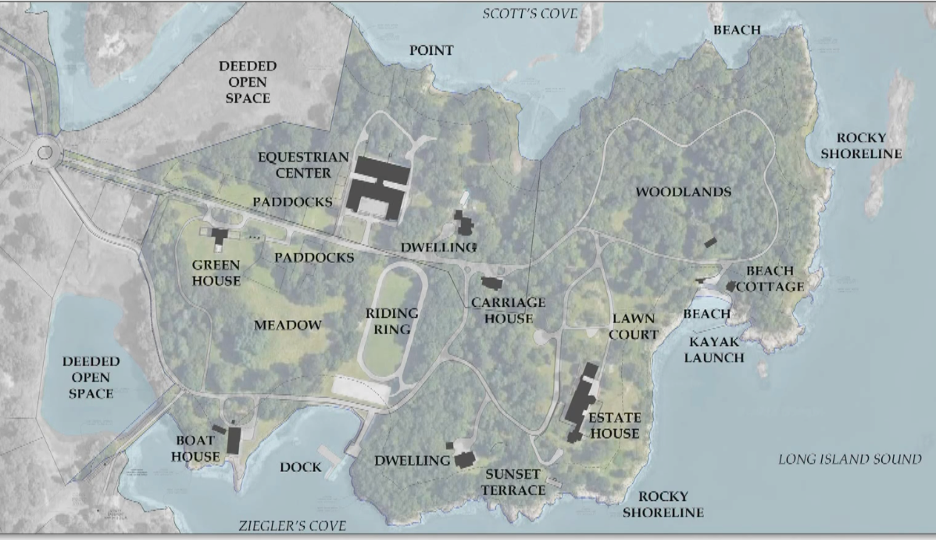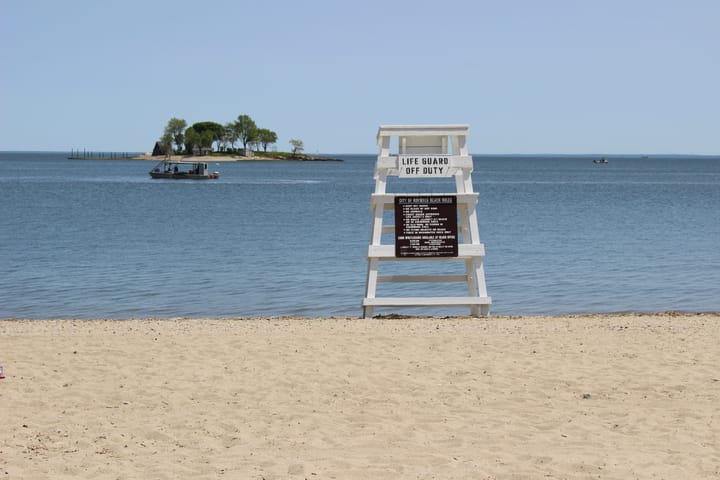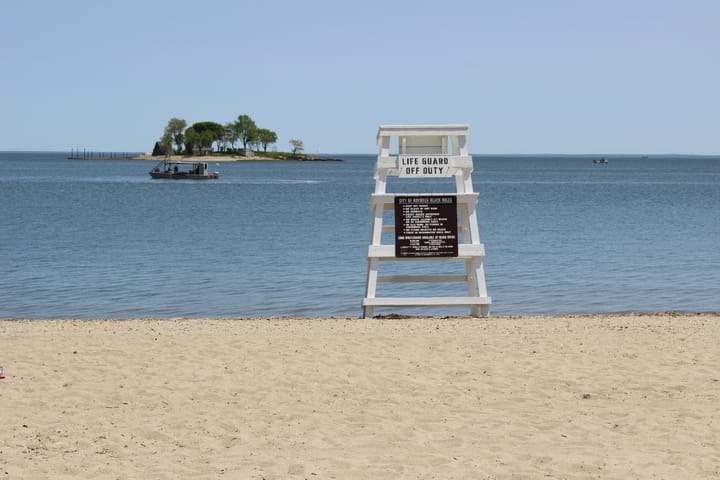A Look at Great Island in Darien
Darien's Representative Town Meeting will vote on the purchase of Great Island on Monday, June 27 at 8 p.m.

With Darien’s Representative Town Meeting set to vote on the plans to purchase Great Island at its meeting on Monday, June 27 at 8 p.m., here is a guide to Great Island—what it is, what it could be used for, how the town plans to pay for it, and future steps.
What is Great Island?
Great Island is an approximately 60-acre property along the Long Island Sound in Darien. The property was originally purchased in the 19th century by William Ziegler, who founded the Royal Baking Powder Company. His descendants, the Steinkraus family, put the property up for sale this year for about $100 million, according to The Real Deal.
Currently on the property, which is mostly undeveloped, there's a 13,000 square foot main residence, a guest house, a few cottages, a farmhouse, an equestrian facility, and related riding infrastructure including trails and a stable.
What’s Happening with the Property?
The town of Darien is working to purchase the Great Island. First Selectwoman Monica McNally signed a contract to purchase the property for about $103 million on May 23. The town has until Tuesday, June 28 at 5 p.m. to approve the contract, with a due diligence period running until August 6.
So far, the Board of Selectmen and Board of Finance have approved the purchase. The Representative Town Meeting is the last vote needed to secure the purchase. The RTM is set to meet on Monday, June 27 to take up the matter.
What Will the Property Be Used For?
McNally has emphasized through multiple presentations on the property that its potential uses will be decided by the community and what residents think is best. She broke the property down into four areas and gave preliminary ideas about what could be possible in each.
The Commons, or the area closest to the road into the property and furthest from the shoreline that contains the equestrian center, could be viewed as a “community space.” This area could be used for camps, a seasonal ice rink, festivals, summer programs, community forums, and a variety of recreational uses, such as keeping up the equestrian activities or others, such as pickleball and bocce.
The area to the south, which contains the estate house, could be used as an arts and culture center. This area could have arts festivals, an arts center, museum, artist in residence space, seasonal music, and indoor event spaces.
The third area, the northeast section of the property that is the most untouched, could be a conservation and education area. This area could include woodland trails, environmental stewardship activities, environmental education programs, community gardens, pollinator pathways, and spots for bird watching.
McNally said in a presentation to two of the RTM districts that she was excited about the opportunities in this area in particular.
“We live in a coastal community, let’s take advantage of that,” she said. “Let’s teach our kids what it means to be a steward of this area.”
And finally, the last section was the 1.5 miles of shoreline throughout the property, which could include areas for boating and sailing, fishing, educational opportunities related to water and climate change, and trails for walking.
How is Darien Paying for Great Island?
The town plans to issue bonds to cover the purchase of the property. Through the annual operating budget, the town will pay principal and interest on the bonds through its debt service. The purchase comes at a slightly challenging time for the town as it has made recent investments in school capital projects that will also add to the debt.
The $103 million to purchase Great Island and including the Hindley Holmes Royle school building project would grow the town’s debt to $243 million at its peak in 2026. This is nearly triple the current debt of the town. The portion of the town’s budget that goes to debt service will also increase by about $7 million during that time and will be about 10% of the town’s budget.
This fiscal year, the median property owner in Darien will pay $14,722 in taxes, on an assessed property value of $854,240. In 2028, once the debt from Great Island and the schools are factored in, that owner could pay $17,125 in taxes or an increase of $2,403. Those numbers are based on the town’s estimates and could change.



